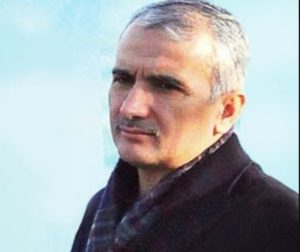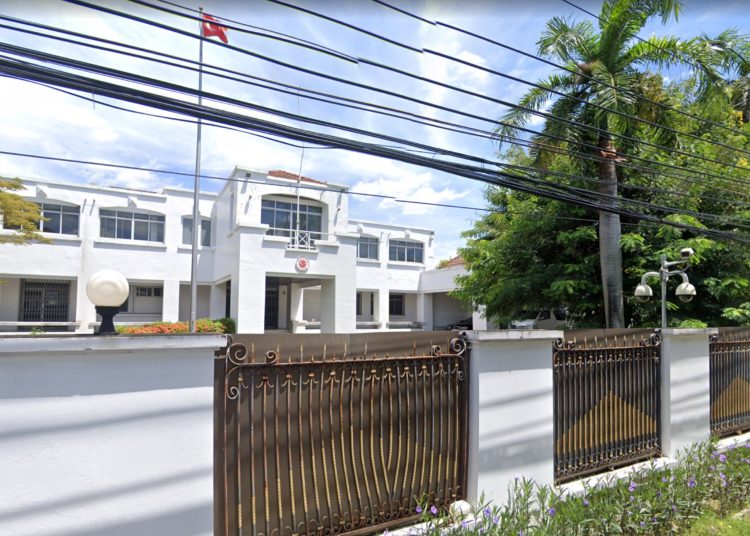Nordic Monitor
Judicial authorities in Thailand have concluded that an extradition request filed by the Turkish government for a critic of Turkish President Recep Tayyip Erdoğan lacked evidence and asked Turkey to provide information that would warrant a review of the request.
In a wire obtained by Nordic Monitor, the Turkish Ministry of Foreign Affairs, referring to a diplomatic letter from the Thai authorities, asked the Justice Ministry to provide supplemental documents and adequate evidence to support the extradition request for 53-year-old Turkish national Osman Hilmi Özdil.
The document, dated January 1, 2021, annexes a diplomatic letter from the Thai Ministry of Foreign Affairs dated December 30, 2021 in which the Office of the Attorney General requested that Turkish authorities supply information since “the extradition request and supporting documents are insufficient to determine that the acts constitute criminal offences under Thai laws,” and “there were insufficient evidence to establish prima facie case if the offences were committed in the Kingdom of Thailand.”
Özdil, an insurance salesman who is alleged to be affiliated with the Gülen movement, is among the the most wanted figures hunted by the Erdoğan government and faces multiple criminal investigations on dubious evidence. He was lynched in the pro-government media with a huge smear campaign and for years has faced all sorts of accusations leveled against him without any solid evidence presented by the authorities.
Communiqué from the Thai Foreign Ministry on Turkey’s extradition request:
One of the accusations, which first emerged in 2010, was that Özdil was in charge of the police department although he did not have any official status. Özdil strongly denied accusations back then and said he knew some police officers because the insurance firm he had worked for had signed several contracts with the police department in the past.
Apparently not impressed by the legal documents which often comprise defamatory articles published in government-controlled media as criminal evidence, Thai authorities made clear to the Turkish side that they were not convinced by the allegations, asking for solid proof and satisfactory evidence to review the extradition case.
Özdil was indicted in absentia in the same case file as Fethullah Gülen, a US-based Turkish Muslim scholar and a vocal critic of President Erdoğan who leads the movement. Gülen also faces multiple arrest warrants and an extradition request from Turkey. However, the US Department of Justice has repeatedly asked the Turkish government for solid evidence of wrongdoing, and Turkey has so far failed to present any direct evidence that would incriminate Gülen.
Turkish Foreign Ministry’s letter, signed by Makbule Koçak, details additional requests by Thai authorities in reviewing the extradition case:
According to court papers previously obtained by Nordic Monitor, the Ankara 4th High Criminal Court accepted prosecutor Serdar Coşkun’s indictment under file No. 2016/24769. In what was seen as a political witch-hunt trial to punish opponents of Turkey’s authoritarian Islamist regime, the indictment accused 75 people of terrorism based on dubious evidence because of their affiliation with the Gülen movement. The court rendered a decision on June 8, 2018, with the reasoned decision issued in January 2019. Only four people were convicted and sentenced to aggravated life. Since the rest of the defendants live outside Turkey and did not stand trial, the Ankara 4th High Criminal Court separated the cases of people who could not be arrested or present during the trial.
None of the defendants had any prior criminal records, and they were all subjects of prosecution because of their affiliation with the Gülen movement. The court also started issuing extradition requests for these victims of the Erdoğan regime, labeling them as terrorists, by abusing either Interpol mechanisms or bilateral judicial assistance agreements. Interpol rejected Turkey’s filings against Gülen-linked people, saying that the filings violated its constitution and denied Turkey access to Interpol mechanisms for politically motivated filings.
So far, no country, including Thailand, has agreed to turn over any of these people sought by the Erdoğan government, citing massive rights violations in Turkey, torture and inhuman treatment in Turkish prisons and no possibility of a fair trial in a country where the rule of law has effectively been suspended.

What is more, Thai authorities underlined in their communiqué that Turkey had failed to submit sufficient evidence “to establish a prima facie case if the offences were committed in the Kingdom of Thailand.”
Requesting evidence in extradition cases is not a rule that applies to all countries. According to Article 12 of the European Convention on Extradition, an international agreement with the highest number of parties with countries outside the European Council, the extradition request should basically be supported by the original or an authenticated copy of the conviction and sentence or detention order immediately enforceable or of the warrant of arrest, together with a statement of the offenses for which extradition is requested, and a copy of the relevant law.
In essence, no prima facie evidence or documentary proof as to the perpetration of the crime is required to initiate the extradition procedure pursuant to this convention. In fact, this lack of evidentiary requirement resulted in reservations in relation to Article 12 on the part of several countries that are party to the convention.
Andorra, Denmark, Iceland, Malta and Norway reserve the right to require the party requesting extradition to produce evidence establishing that the person claimed has committed the offense for which extradition is requested. Extradition may be refused by these countries if the evidence is found to be insufficient.
Reservations on the European Convention on Extradition:
This is not the first time Turkish authorities have failed to provide evidence in a politically motivated extradition request. In a report on the abuse of the Interpol system, the Stockholm Center for Freedom (SCF) showed how an extradition request turned into a rendition in the case of Abdullah Büyük, a Turkish businessman who fled Turkey to avoid the government witch-hunt targeting the Gülen movement.
Büyük was arrested in Sofia on August 10, 2016 on an Interpol warrant issued at the request of the Turkish government, and despite the clear ruling of the court against it, he was immediately handed over to Turkish authorities in what was described as a secret scheme. The rendition reportedly occurred as part of a political bargain between the Turkish and Bulgarian governments regardless of the fact that both the Sofia City Court and the Bulgarian Court of Appeals in Sofia ruled against Büyük’s extradition in March 2016, saying that Turkey had failed to present any evidence related to the charges brought against him, that they were likely politically motivated and that Büyük was unlikely to have any chance of a fair trial in Turkey.
Erdoğan, incriminated in a major corruption scandal in 2013 that exposed secret kickbacks in money laundering schemes involving Iranian sanctions buster Reza Zarrab, blamed Gülen for the graft investigations into his family members and business and political associates. He branded the group as a terrorist entity although no violent action has been associated with it, and launched a major crackdown on the group, jailing and/or purging tens of thousands of government employees, unlawfully seizing their assets and shutting down schools, universities, NGOs, media outlets, hospitals and other entities that were owned or operated by people associated with the movement.
In 2016 Erdoğan added the coup charges against Gülen, who denied any involvement in the abortive putsch that was branded by many as a false flag operation organized by President Erdoğan and his intelligence and military chiefs. Erdoğan used the event as a pretext to transform NATO’s second largest army into a hotbed of neo-nationalists and Islamists with a purge of almost 80 percent of all generals and admirals. He also acquired “imperial” presidential powers and launched cross-border offensives into Syria.
According to official data announced in February 2021, a total of 622,646 people have faced punitive legal action in the last five years by the government due to alleged links to the Gülen movement. Of these, 301,932 people have been detained and 25,467 jailed pending trial or due to conviction. Nearly 100,000 people were released after imprisonment under judicial supervision, meaning they are subject to a travel ban and are required to check in with the local police station on a regular basis.












